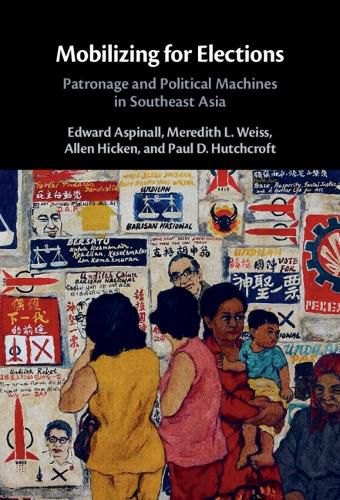Readings Newsletter
Become a Readings Member to make your shopping experience even easier.
Sign in or sign up for free!
You’re not far away from qualifying for FREE standard shipping within Australia
You’ve qualified for FREE standard shipping within Australia
The cart is loading…






Politicians in Southeast Asia, as in many other regions, win elections by distributing cash, goods, jobs, projects, and other benefits to supporters, but the ways in which they do this vary tremendously, both across and within countries. Mobilizing for Elections presents a new framework for analyzing variation in patronage democracies, focusing on distinct forms of patronage and different networks through which it is distributed. The book draws on an extensive, multi-country, multi-year research effort involving interactions with hundreds of politicians and vote brokers, as well as surveys of voters and political campaigners across the region. Chapters explore how local machines in the Philippines, ad hoc election teams in Indonesia, and political parties in Malaysia pursue distinctive clusters of strategies of patronage distribution - what the authors term electoral mobilization regimes. In doing so, the book shows how and why patronage politics varies, and how it works on the ground.
$9.00 standard shipping within Australia
FREE standard shipping within Australia for orders over $100.00
Express & International shipping calculated at checkout
Politicians in Southeast Asia, as in many other regions, win elections by distributing cash, goods, jobs, projects, and other benefits to supporters, but the ways in which they do this vary tremendously, both across and within countries. Mobilizing for Elections presents a new framework for analyzing variation in patronage democracies, focusing on distinct forms of patronage and different networks through which it is distributed. The book draws on an extensive, multi-country, multi-year research effort involving interactions with hundreds of politicians and vote brokers, as well as surveys of voters and political campaigners across the region. Chapters explore how local machines in the Philippines, ad hoc election teams in Indonesia, and political parties in Malaysia pursue distinctive clusters of strategies of patronage distribution - what the authors term electoral mobilization regimes. In doing so, the book shows how and why patronage politics varies, and how it works on the ground.